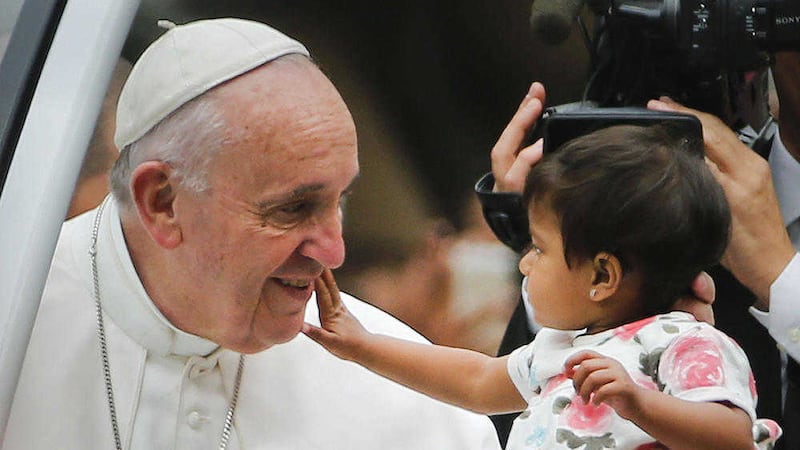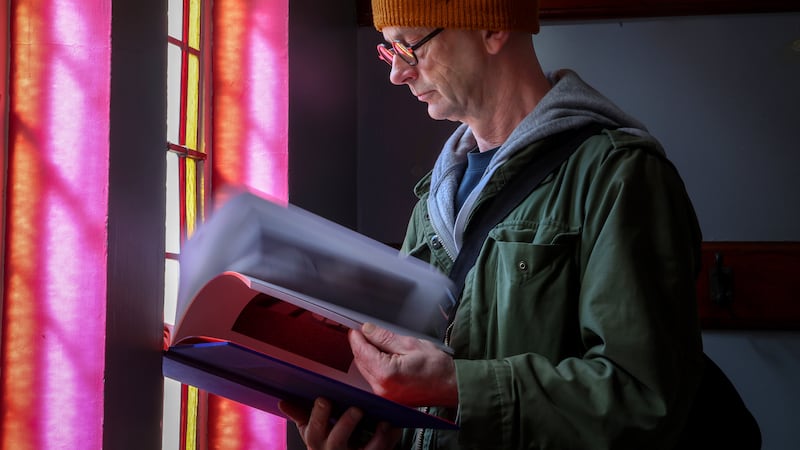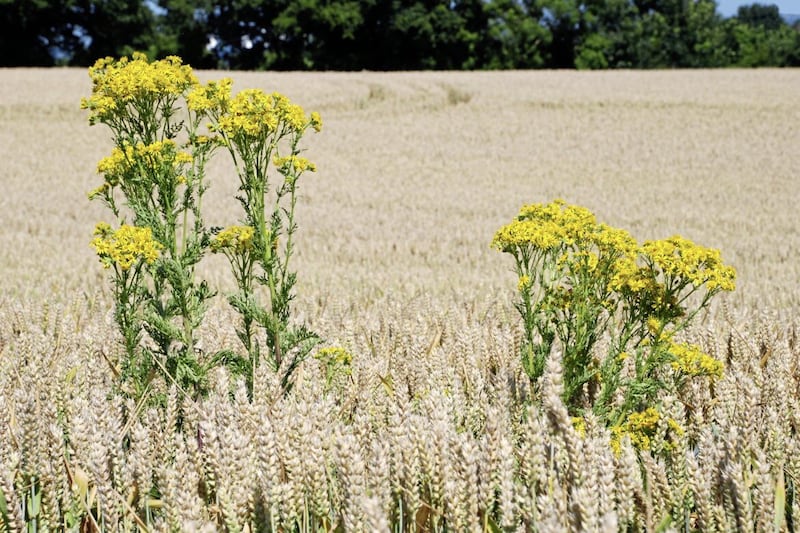FOLLOWING his triumphant trip to Cuba and the United States, the focus on Pope Francis returns to the Vatican this week, where a synod of bishops begins on Sunday, writes William Scholes.
The family, a refrain of Francis's papacy, is once again centre-stage, just as it was at last week's World Meeting of Families in Philadelphia.
The synod will consider ways the Catholic Church should respond to the pastoral challenges faced by families - an almost impossibly broad remit, taking in everything from homosexuality and divorced and remarried couples, to marriage preparation and access to communion.
Ireland's representatives at the synod will be Archbishop of Armagh Eamon Martin and Archbishop of Dublin Diarmuid Martin, bringing with them feedback from parishes across the country.
Buoyed by the news that the next World Meeting of Families will be held in Dublin in 2018, the archbishops will be encouraging Pope Francis to attend the event and do what Pope John Paul II was unable to in 1979, and include Northern Ireland on his schedule.
The World Meeting of Families, which takes place every three years, is a relatively new phenomenon, and was started in 1994 by Pope John Paul II.
Popes don't always attend the meeting, however, and if Francis does visit he will find an Ireland dramatically different from that in which he studied in 1980, when he stayed at the Jesuit Centre at Milltown Institute of Theology and Philosophy in Dublin.
Nor is it by any means assured that Francis will still be Pope in 2018, when he will be 81 years old; he has previously suggested that he is inclined to follow the example set by Benedict, and retire from office.
Either way, the Dublin meeting will be a hugely significant international event and its announcement and the build-up gives the Irish Church a much-needed shot of adrenaline at a time when it is facing numerous challenges.
Synod of Bishops Q&A
:: What is the Synod of Bishops?
Bishops representing all regions of the world will meet in Rome from Sunday until October 25.
It will be the 14th meeting of what is called the Ordinary General Assembly of the Synod of Bishops. The official theme is 'The vocation and the mission of the family in the Church and contemporary world'.
The synod is a permanent institution established by Pope Paul VI in 1965 to keep alive the spirit of the Second Vatican Council.
The synod is an assembly at which bishops, gathered around and with the Pope, have the opportunity to interact with each other and to share wisdom, information and experiences, in the common pursuit of pastoral solutions which have a universal validity and application.
:: What is the difference between the Extraordinary Synod of 2014 and the Ordinary Synod of 2015?
'Ordinary' synods are held at fixed intervals and 'extraordinary' synods are held to address some particularly important matter.
There have been three extraordinary assemblies - in 1969, 1985 and 2014.
:: Who will attend the 2015 Ordinary Synod in Rome?
More than 360 participants, including 18 married couples from around the world, are expected to attend this month's synod.
In addition to the 166 synod members elected by their national bishops' conferences, 22 heads of Eastern Catholic churches, 25 heads of Vatican congregations and councils and 10 heads of men's religious orders, the Pope appointed an additional 45 synod fathers to take part.
:: What do the working documents for the synod contain?
The Instrumentum Laboris, or working document of the synod, is divided into three parts following the structure of the Relatio Synodi, which was the final report of last year's extraordinary assembly.
It was dedicated to 'The pastoral challenges of the family in the context of evangelisation', a theme which informs the upcoming 'ordinary' synod.
The three parts of the synod's work are: 'Listening to the challenges of the family'; 'Discernment of the family vocation'; and 'The mission of the family today'.
After the synod, the bishops will present the Pope with their recommendations. He will then evaluate their proposals and provide the Church with guidance.








